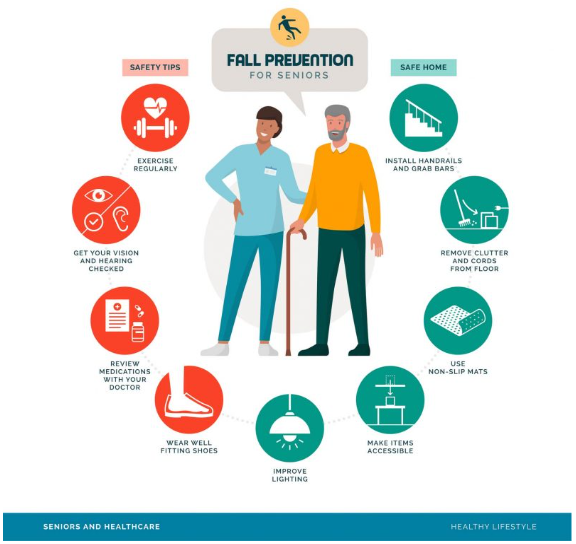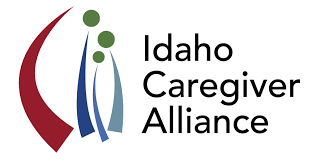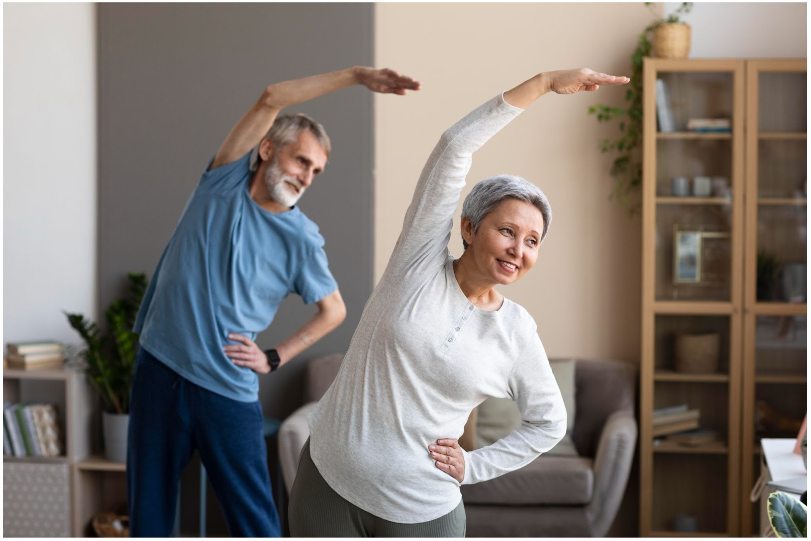Guest Author: Becca Casebolt
This week is fall prevention week.
Fall prevention week is meant to increase awareness about falling and injury prevention in older adults. Caregivers can play a large role in fall prevention for their older care recipients.
Falls are the leading cause of fatal and nonfatal injuries among adults 65 and older.
Idaho has a higher fall and injury rate than the national average. The CDC reports that every year, 1 out of 3 older adults report a fall in Idaho, compared to the 1 out of 4 U.S. national average. Fall death rates have been increasing in the United States as the population ages, so the importance of raising awareness about falls in older adults has never been more relevant to caretakers and older adults.
Risk factors for an increased chance of falling:
- Environmental risks
- Poor lighting
- Cluttered areas
- Lack of grab bars and stair railings
- Biological Risk Factors
- Poor balance and muscle weakness
- Arthritis/stroke history
- Medication side effects and interactions
- Vision impairment
- Behavioral Risk Factors
- Inactivity
- Risky behaviors
Fall Prevention
- Remove clutter and possible trip hazards in the home
- Install grab bars or railings in appropriate places in the home
- Ensure the home has good lighting
- Get appropriate glasses for vision impairments
- Be aware of possible medication interactions and behavioral changes
- Exercises such as tai chi or fall prevention exercise programs

Supporting your Care Recipient
- Some of the most helpful fall prevention tactics are done by making in-home accommodations to those who are at an increased risk of falling. If you are unsure of how to modify the home for fall prevention, reach out to an occupational home health therapist in your area.
- Another beneficial fall prevention method is exercising to improve balance and coordination! An increased number of communities offer fall prevention programs in recent years. Your community may offer fall prevention exercise programs in your area that you didn’t know about. Most fall prevention exercise programs have a knowledgeable group leader trained to help older adults with balance and coordination. Idaho has the Fit & Fall Proof program available throughout the state as a fall prevention exercise program for older adults.
- Do not be afraid to ask your care recipient’s doctor about medication interactions if you notice changes in behavior following a change in medications, especially if your recipient is taking over 4 medications at a time.
Caring for an older adult who is at risk for falling can be challenging and stressful. If you feel overwhelmed, start with changing the small things one day at a time; even improving one risk factor could lower the chances of a fall. Always ask for support from friends, family, and your community if you need resources for yourself or your care recipient.

